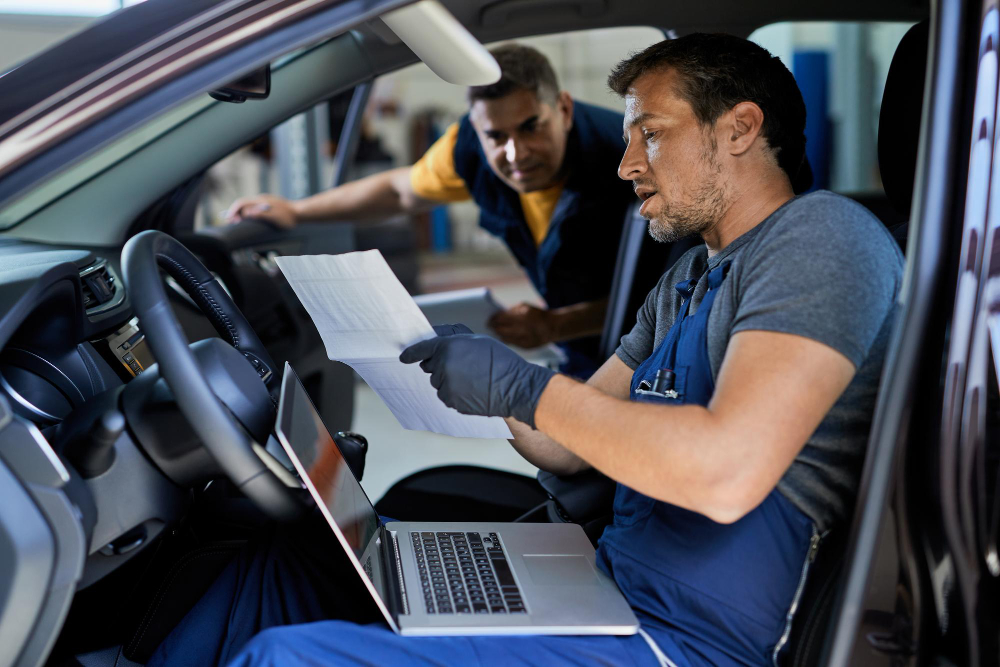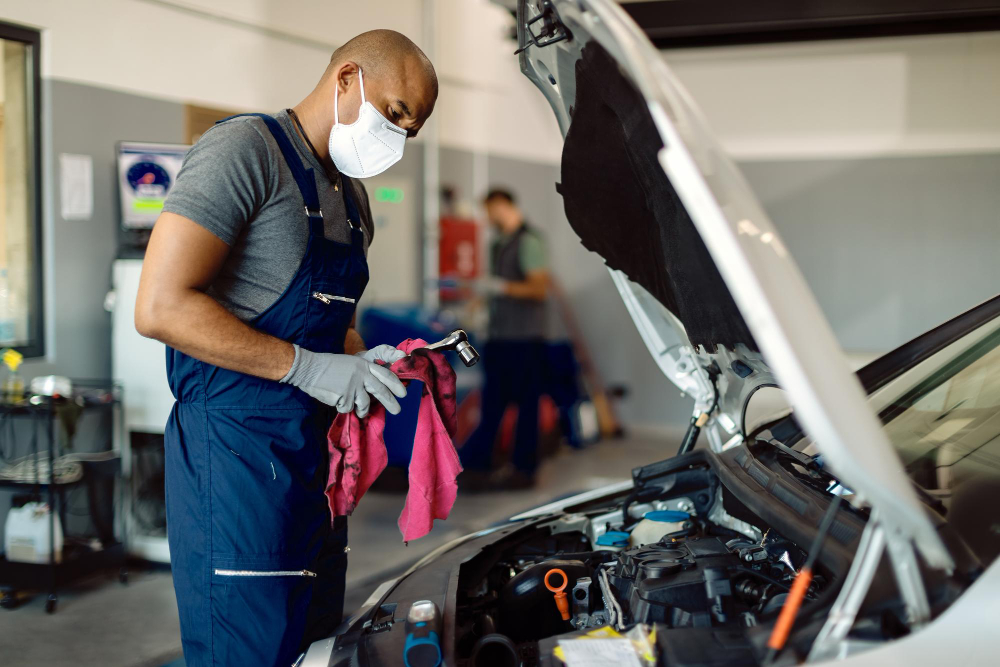Maintaining your car is like taking care of a family member. Whether you’ve inherited your family car or purchased a new one, keeping it in good shape is essential for a smooth and trouble-free ride. But don’t worry if you’re not a car expert; this article will give beginners 10 basic car maintenance tips. These tips will help you keep your vehicle in excellent condition without breaking the bank.
Now, let’s dive into these tips and explore how to maintain your car like a pro, even if you’re starting.
Basic Car Maintenace Tips
1. Refer to the Owner Manual
Before you start maintenance work on your car, your best friend is the owner’s manual. It’s like your car’s bible, containing invaluable information about your vehicle. If you can’t find the physical manual, look it up on the manufacturer’s website. It includes details on security, child safety, keys, specifications, fuel, etc. Surprisingly, many common issues like changing a flat tire or unlocking a locked door can be easily solved by consulting your owner’s manual.

2. Keep a Check on the Tire Pressure
Your car’s tires are crucial for keeping it mobile. Incorrect tire pressure can reduce tire life, early wear and tear, and even tire bursts. Ensure you maintain the recommended air pressure or nitrogen levels in your tires. You can use simple, inexpensive devices to check the tire pressure. Additionally, perform visual checks for cracks or objects stuck on the tire’s exterior.
3. Change Oil and Oil Filter
Think of your car as a complex machine with numerous moving parts. You need oil and an oil filter to keep these parts running smoothly. Oil lubricates the moving parts and absorbs the heat generated by friction. An oil filter keeps the oil clean and free of contaminants. You can change the oil and oil filter of your car by following these steps:
- Refer to the owner’s manual to locate the oil drain plug.
- Remove the old oil, replace the plug, and remove the old oil filter.
- Lubricate the new oil filter with fresh oil.
- Pour in the required amount of oil.
- Check for leaks by powering the engine.
- After ensuring no leaks, wait a few minutes and check the oil level with a dipstick.
- Add more oil if necessary.
Even beginners can successfully change the oil and oil filter, and it’s crucial for your car’s performance.
4. Keep the Engine Clean
Your car’s engine is its heart, and a clean engine is essential. While you can’t do much to clean it internally, you can keep the external parts clean to spot potential issues like leaks. Dust and debris on the surface can cause engine damage. Use engine cleaners to wipe away any grime.
5. Look for a Faulty Spark Plug
Your car won’t start without a working spark plug, and it’s easy to tell if it’s faulty. Look for signs like difficulties starting the car, decreased mileage, increased noise and vibrations during idling, and uneven acceleration. Don’t forget to check your spark plug as part of your basic car maintenance routine.
6. Keep the Interiors Clean
You don’t need to spend a fortune on car washes. A simple vacuum cleaner can help keep the interior dust-free. Innovative cleaning items are available, such as scented slime to clean tricky places like air vents, the base of the gear stick, or the area under the steering wheel.
7. Carry Out Battery Maintenance
Learn the basics of car battery maintenance from your owner’s manual or the internet. You should know where your car’s battery is located and how to disconnect and clean the terminal contacts safely. Always disconnect the negative terminal first to reduce the chances of accidents. Regularly cleaning the battery will extend its life.
8. Check the Brake Fluid
Your car’s braking system relies on brake fluid for proper function. Regularly check the level and colour of the fluid (your owner’s manual can help). Dark-coloured fluid indicates it’s time for a replacement.
9. Maintain Fuel Economy
Regular car maintenance extends your vehicle’s life and helps with fuel economy, saving you money. Here are some tips:
- Maintain an average speed between 40 to 60 kmph to avoid rapid speed fluctuations and rash driving.
- Avoid overloading your car with heavy weights, as it reduces mileage.
- Consider a different vehicle if your business involves transporting heavy objects frequently.
10. Replace the Cabin Air Filter
If your car’s air conditioning isn’t as efficient as before, you might need to replace the cabin air filter. In tropical climates, changing the filter every six months is advisable. Consult your owner’s manual or a trusted mechanic for precise steps.
Conclusion
Basic car maintenance doesn’t require extensive knowledge; even beginners can keep their cars in great shape. Regular checks, tire pressure maintenance, oil changes, spark plug inspections, and other tips discussed here can extend your car’s life and keep running smoothly.
Frequently Asked Questions
What does the oil warning light indicate?
The oil warning light can illuminate for various reasons, indicating issues like ineffective oil flow, blockage, low oil levels, or foaming. If you see this light blinking, it’s best to turn off the engine promptly to avoid potential damage.
What should I do if I accidentally refuel with diesel in a petrol car?
If you haven’t started the engine, tow the car to a garage for diesel removal. The fuel may have circulated through the system if the engine has been powered. In that case, a mechanic must unhook the fuel lines, add petrol, and replace the oil.
Why is it important to carry out regular maintenance of the car?
Regular maintenance is crucial for a car’s longevity. It allows you to monitor fluids, filters, wear and tear, and ensures smooth functioning. Neglecting maintenance can lead to inconvenient breakdowns and costly repairs.
How often should I check my car’s tire pressure?
You should check your car’s tire pressure at least once a month and before long journeys. Correct tire pressure improves safety, fuel efficiency, and tire life.
Can I change the cabin air filter myself?
Yes, you can change the cabin air filter yourself. Refer to your owner’s manual or consult a trusted mechanic for specific instructions. The cabin air filter is usually located under the glove box and is easily accessible.
